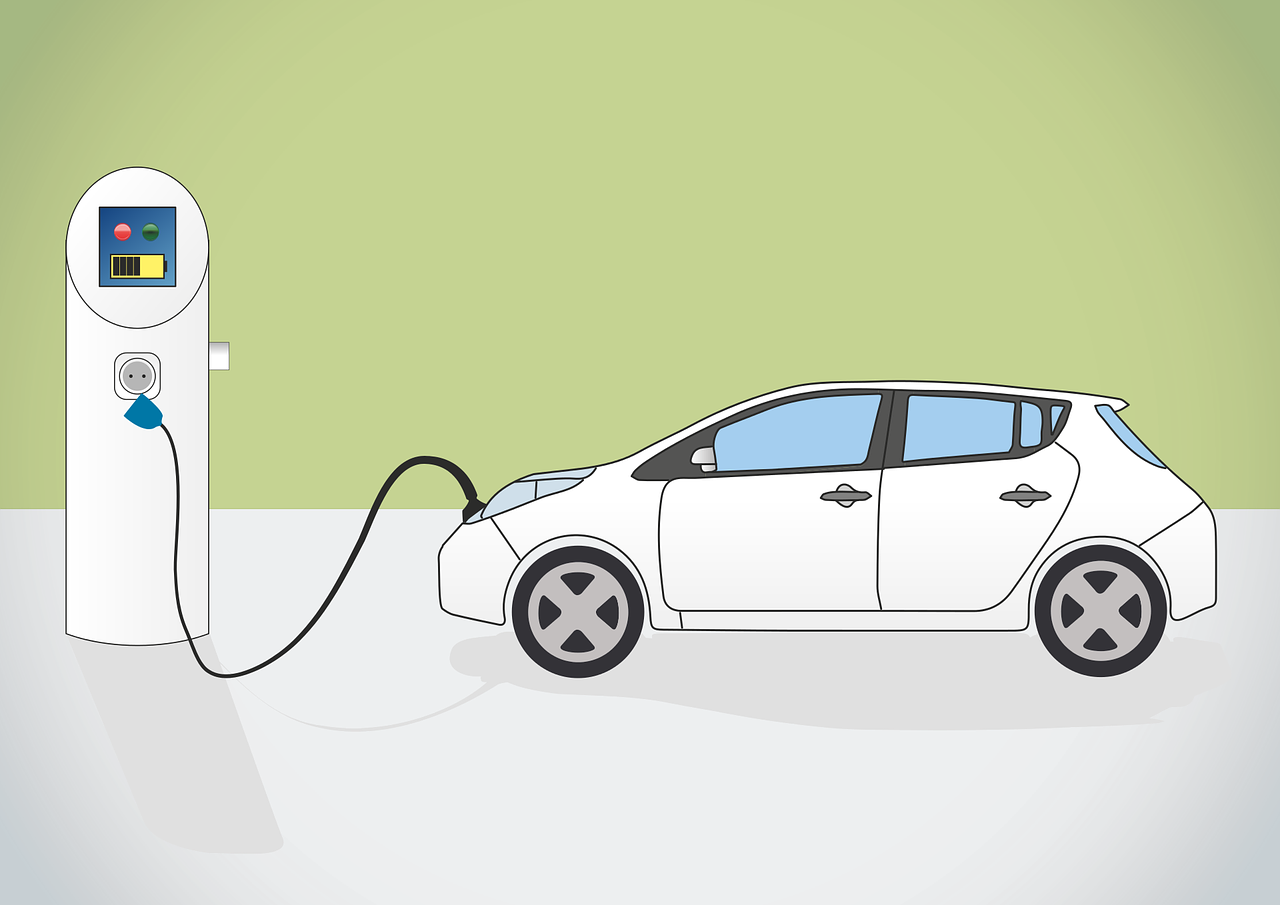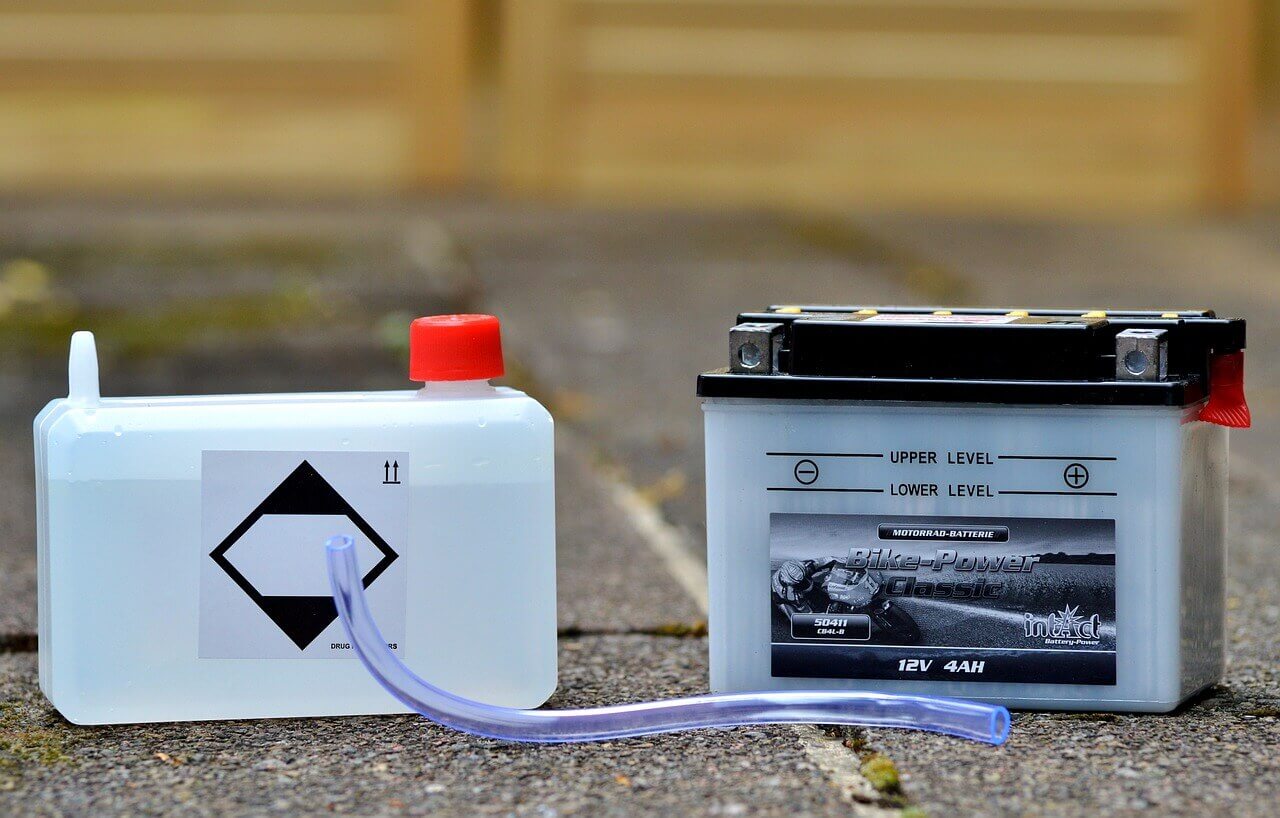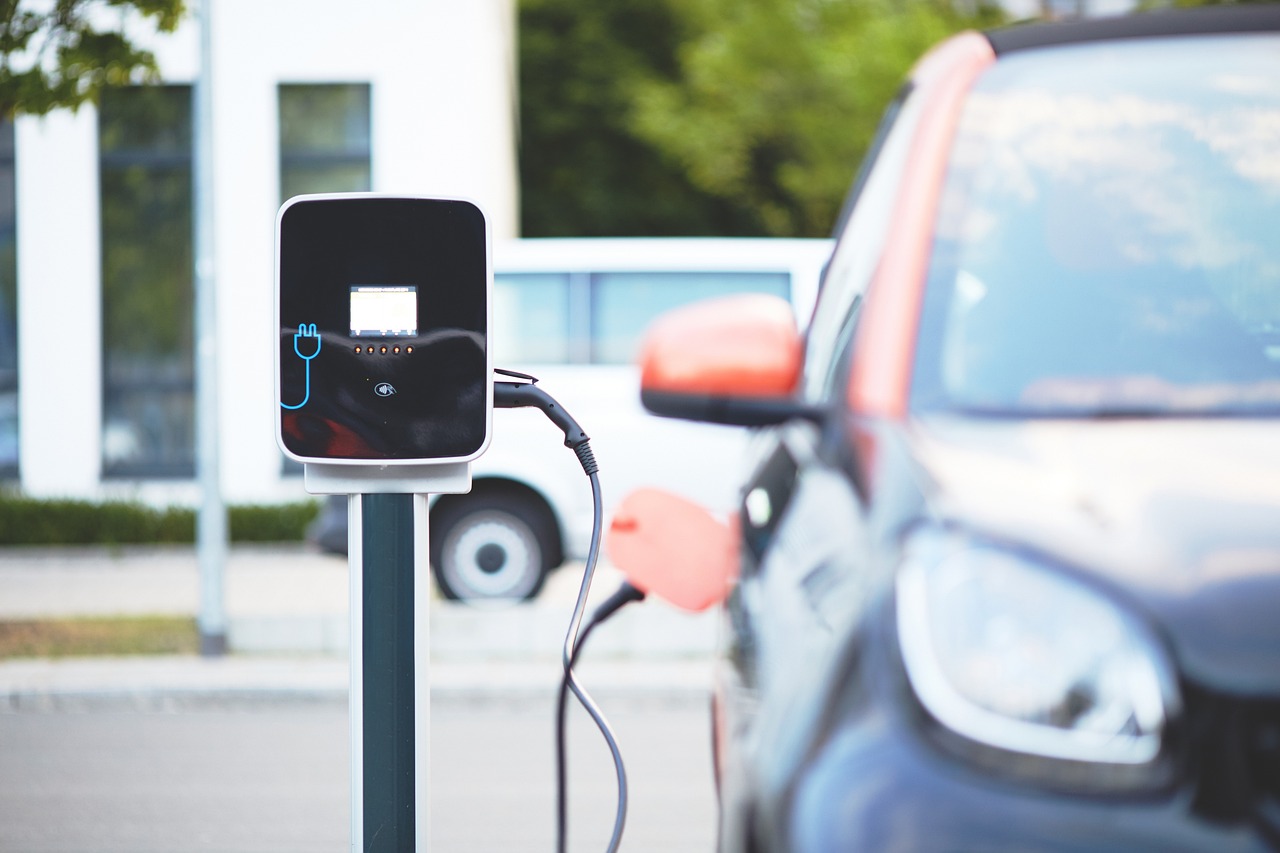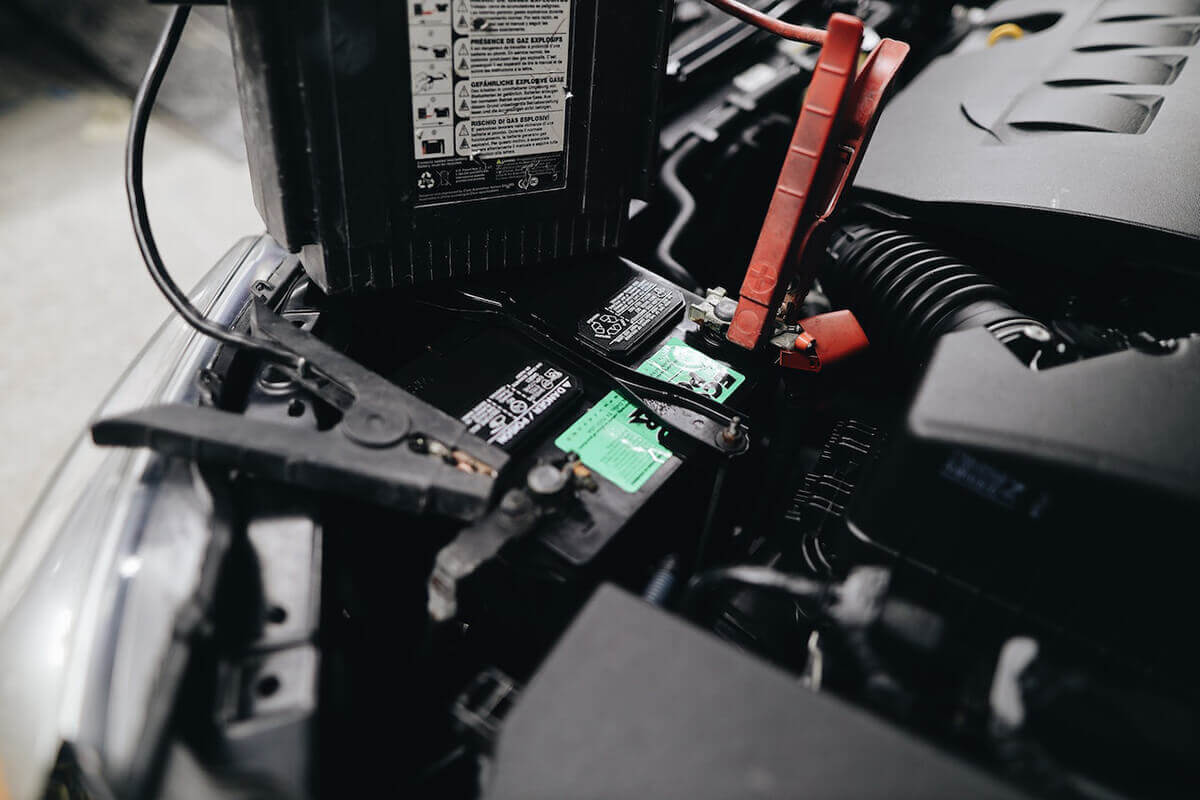Power Up Your Ride: The Benefits Of A Lifepo4 Battery In Car

Are you ready to revolutionize your ride? With the advent of LiFePO4 batteries, car owners everywhere can feel like they're driving a high-performance racecar no dream is too wild! These new power sources offer an unprecedented level of control and performance that will leave other drivers in the dust. In this article, we'll explore how LiFePO4 batteries can take your ride from average to awesome.
From improved acceleration and torque to increased energy efficiency, installing a LiFePO4 battery in your vehicle offers several benefits to drivers looking for an extra edge over their competitors. For those who have already made the switch or are considering doing so, understanding the different features available with these types of batteries can help you make the most out of them. We'll cover what makes LiFePO4 batteries unique and some tips on getting started with the installation.
Finally, there are also considerable savings associated with choosing LiFePO4 batteries instead of traditional lead acid batteries. Not only do they last longer than their counterparts but they require less maintenance as well - ensuring you get more bang for your buck while powering up your ride! So if you're looking to upgrade your car without breaking the bank, then look no further than LiFePO4 ?it's time to hit the accelerator towards optimal performance today!
Definition Of Lifepo4 Battery
A LiFePO4, or lithium iron phosphate, battery is a rechargeable battery that has become increasingly popular in car applications. This type of battery boasts numerous advantages over traditional lead acid batteries and other forms of lithium-ion chemistry. It is an extremely efficient power source, offering excellent performance in terms of both cycle life and energy density.
Furthermore, its chemical composition makes it safer than some other types of lithium-ion chemistries due to the fact that it cannot be easily overcharged or shorted out--making it less likely to cause thermal runaway issues, even if damaged or mishandled.

For automotive enthusiasts looking for improved control over their vehicle's power system, the LiFePO4 battery provides several benefits. Its high charge efficiency reduces the amount of time needed to reach full capacity after charging cycles, while also reducing any potential damage caused by deep discharges.
What's more, this type of battery can provide up to twice as much usable energy compared to lead acid unit because they are able to deliver higher current levels with minimal voltage dropoff under load conditions. In addition, these batteries have greater temperature tolerance and safety features which make them ideal for use in vehicles operating in extreme climates or subjected to rigorous off-road driving conditions.
These factors all combine to create an attractive option for those seeking reliable and cost-effective improvements on their vehicle’s electrical systems without sacrificing performance or reliability. The advantages of choosing a LiFePO4 battery go beyond simply improving upon existing technologies; they offer peace of mind knowing that one's ride has been equipped with the latest technology available for added power and control when out on the road!
Overview Of Lifepo4 Technology
The LiFePO4 technology is a cutting-edge battery solution that has revolutionized the automotive industry. It stands apart from other lithium ion batteries due to its remarkable energy storage and power density, which makes it ideal for vehicle applications. These cells provide higher voltage than traditional lead acid batteries, allowing them to offer more usable power at lower costs. In addition, they have an impressive lifespan with over 6000 charge/discharge cycles before needing replacement.

LiFePO4 batteries are also well known for their cost efficiency when compared to lead acid alternatives. They require fewer maintenance tasks such as regular charging and water refilling, resulting in significant savings in time and money over the life of your car's battery. Moreover, these advanced units offer enhanced performance by providing consistent power output regardless of temperature or load fluctuations.
When you install a LiFePO4 battery in your ride, you gain full control over the way electricity is managed within your vehicle system. You can rest assured knowing that this high-performance alternative will give you reliable starts every single time while consuming less energy than conventional lead-acid options. With its improved safety features including thermal stability and lighter-weight construction, there's no doubt that installing a LiFePO4 battery is one of the smartest decisions you'll make for your ride.
Advantages Of Lifepo4 Batteries
When it comes to powering up your ride, LiFePO4 batteries have some clear advantages. From their long lifespan and high performance to the eco-friendly benefits that come with them, these lithium ion batteries are a great choice for anyone looking to upgrade their car's battery power. Here are just four of the many reasons why you should consider upgrading to LiFePO4:
- Longer Life-Span - These lithium ion batteries can last up to 10 times longer than other types of lead acid or AGM batteries, meaning they'll need fewer replacements over time.
- High Performance - With higher voltage and faster recharge rates than traditional lead acid batteries, LiFePO4s provide more consistent power output across a wide range of temperatures and conditions, making them ideal for cars that require reliable performance in harsh environments.
- Eco-Friendly Benefits - LiFePO4 batteries don't contain any toxic elements like lead or cadmium, so they're much better for the environment than conventional lead-acid models. Plus, because these lithium ion cells don't suffer from the "memory effect," they won't lose capacity as quickly when recharged multiple times.
- Cost Savings - Not only do LiFePO4s cost less per charge cycle than other types of replacement batteries, but their longer lifespan also means you won't be spending money on replacing them nearly as often either!
The bottom line is this: if you're looking for an efficient way to upgrade your vehicle's battery system without compromising on quality or performance, then investing in LiFePO4 technology is definitely the way to go! It may take an upfront investment, but with all its advantages—including those mentioned above—it's sure to pay off in the end!
How To Charge A Lifepo4 Battery

Charging a LiFePO4 battery is easy, and the correct charging process itself can actually extend battery life. Charging a LiFePO4 battery in a car or truck is basically the same as charging any other type of car battery. The biggest difference between a LiFePO4 battery and a traditional lead-acid battery is that it requires less maintenance.
First, let's investigate if there really are benefits to using a LiFePO4 battery over a traditional lead-acid one when powering up our ride. Yes, absolutely! A LiFePO4 battery has more power per pound than conventional lead-acid batteries, meaning you get more bang for your buck when replacing an old one with this new technology. What’s even better is that these batteries don't require frequent recharging as their predecessors do.
To charge a LiFePO4 battery, all you need to do is connect it directly to your vehicle's electrical system - no special charger is required. It may be necessary to use additional safety precautions such as wearing gloves and goggles during the charging process though; just remember to always follow manufacturer guidelines first and foremost. With proper care and timely charging cycles, you can ensure optimal performance from your LiFePO4 battery for years to come!
What Makes A Lifepo4 Battery Different?
LiFePO4 technology is the latest advancement in lithium-ion battery technology. It offers more than just a higher energy density, it also has a superior charging cycle and deep discharge performance over its predecessors. This makes it an ideal choice for powering cars and other vehicles.
One of the most notable differences between LiFePO4 batteries and traditional lead acid or nickel metal hydride batteries is their capacity to accept high current loads without damage or significant voltage drop. This means they can be used to power engines with larger displacement while still providing good fuel efficiency. Additionally, LiFePO4 cells are much lighter than other types of batteries so they don't add extra weight which would reduce overall vehicle performance.

Another benefit that comes with using LiFePO4 batteries is longer life expectancy when compared to other types of automotive batteries. With proper maintenance, such as avoiding extreme temperatures and regular recharging cycles, these advanced cells have been known to last up to twice as long as conventional batteries. And because LiFePO4 cells produce less heat during operation, they tend to require fewer cooling fans or radiators which cuts down on additional engine noise associated with some older car models.
In short, LiFePO4 technology provides many advantages over traditional battery technologies when applied in cars or any other type of motorized vehicle. Not only does it offer improved efficiency and extended life expectancy but also reduced weight, better temperature management and greater acceptance of high current loads making it a perfect fit for those who want maximum control over their ride's performance - all while enjoying increased safety measures due to its robust design capabilities.
Benefits Of A Lifepo4 Battery In Car
The LiFePO4 battery is the perfect choice for powering up your car. It offers an array of advantages that make it one of the most sought-after power sources in the automotive industry. Not only are these batteries incredibly efficient and cost-effective, but they also provide a significant boost to safety considerations and environmental impact as well.
To illustrate why this type of battery is such a great fit for cars, let's look at some key benefits from a comparison standpoint:
| LiFePO4 Battery | Lead Acid Battery | Nickel-metal Hydride (NiMH) Battery | |
| Cost | Low Cost | Moderate Cost | High Cost |
| Weight | Lightweight | Heavyweight | Medium Weight |
| Safety | Safest Option | Potential Fire Risk | Potentially Unsafe if Overcharged |
| Environmental Impact | Eco-Friendly | Pollutant Emissions | Eco Friendly |
As you can see, the LiFePO4 battery has several advantages when compared to other types of batteries. In terms of cost, LiFePO4 batteries offer excellent savings over more traditional lead acid or nickel-metal hydride options. Additionally, LiFePO4 batteries weigh significantly less than their heavier counterparts making them much easier to use in vehicles without compromising on performance.
In terms of safety considerations, the LiFePO4 battery provides superior protection against potential hazards like overheating or catching fire due to overcharging - something that can be particularly dangerous with lead acid or NiMH models. Finally, from an environmental perspective, there’s no denying that LiFePO4 batteries have minimal emissions while still providing good performance capabilities making them ideal choices for those looking to reduce their carbon footprint.
Clearly then, investing in a lifepo4 car battery makes sense both economically and environmentally speaking; offering considerable savings along with improved safety measures and reduced pollutant emissions too! If you're looking for the best way to power up your ride and reap all these rewards simultaneously; LiFePo4 should certainly be your go-to solution!
Cost Comparison With Other Batteries
When it comes to the cost of a lifepo4 battery, it's important to compare it with other batteries on the market. While there are many different types of car batteries available, one of the most popular is the traditional lead-acid battery. This type of battery has been around for decades and can be found in many cars and trucks today. But when you look at the price tag, you'll find that these batteries aren't cheap - they usually run between $50-$100 depending on size and quality.

The good news is that lifepo4 batteries cost much less than this traditional option. That's because they last longer and you don't have to replace batteries as often - which means even more savings over time!
Finally, if you're looking for an environmentally friendly way to power up your ride, then a lifepo4 battery could be just what you need. Unlike traditional car batteries which contain toxic chemicals such as sulfuric acid and lead oxide, these new lithium ion alternatives don't release any harmful emissions into the air or water when disposed of them after use. That makes them not only cheaper but also better for our planet too!
Safety Considerations
Safety is a primary concern when upgrading to a LiFePO4 battery in your car. There are several safety precautions that should be taken before, during, and after the installation of the new battery.
First, it's important to consider all necessary safety measures when installing or replacing the battery. Careful attention needs to be paid to ensure proper connection between the terminals and cables. Additionally, make sure you wear protective eyewear and clothing if needed while handling any components of the battery. It’s also essential to read all instructions for setup and installation carefully prior to beginning work on the vehicle.
When driving with a LiFePO4 battery installed, there are specific guidelines that must be followed as well. Make sure you don't overcharge or discharge the battery beyond its recommended limits as this can cause permanent damage that could lead to an unsafe situation while driving.
You should also monitor your current draw regularly by using a multimeter or other device specifically designed for measuring electrical currents and voltages in vehicles equipped with LiFePO4 batteries. This will help prevent any dangerous situations from occurring while out on the road.

Finally, special care must be taken regarding fire hazard prevention when dealing with these types of batteries. Sparks created by tools used near them could ignite combustible materials such as fuel lines or plastic parts nearby resulting in catastrophic consequences for both you and your vehicle.
Be sure to check all connections frequently for signs of corrosion which may lead to short circuits or fires caused by faulty wiring systems inside your car. Taking these simple steps can go a long way toward ensuring the safe operation of your LiFePo4-powered ride!
Maintenance Requirements
Now that you know the safety considerations for a Lifepo4 battery in your car, it's time to get into the nitty-gritty of maintenance. Making sure your battery is cared for properly can save you from costly repairs and downtime on the road. Like any mechanical device, regular upkeep will help keep your vehicle running smoothly.
When it comes to Lifepo4 batteries, there are some specific tips to follow when performing maintenance. First, make sure to keep up with routine checks. This includes checking the acid levels monthly, replacing connectors as needed and periodically testing voltage output at full charge. Additionally, if possible install an advanced monitoring system (BMS) that provides real-time data about the condition of your battery pack.
Finally, don't forget about keeping clean connections between cells and wires so current flow remains unobstructed - this means taking extra care during installation and cleaning terminals regularly using a solution such as baking soda or vinegar mixed with water. Taking these steps will ensure the optimal performance of your lifepo4 battery and minimize unexpected breakdowns due to poor maintenance habits!
Disadvantages Of Using Lifepo4 Batteries
Despite the advantages of using LiFePO4 batteries to power up your ride, there are some inherent drawbacks. Low-temperature performance is a common issue with these types of lithium ion batteries and can cause them to lose significant capacity in cold temperatures. Weight limitations also come into play when considering LiFePO4 as an alternative car battery, since they tend to be heavier than their lead-acid counterparts.
Price volatility due to fluctuating raw material costs can make it difficult for consumers to budget ahead and predict future expenses related to replacing or maintaining their vehicle’s battery. Capacity restrictions have been another stumbling block for those looking at LiFePO4 technology; compared to traditional lead acid batteries, LiFePO4 offers fewer watt-hours per kilogram of weight, meaning that high-output vehicles may require more frequent recharging.
Finally, safety risks associated with improper handling should not be overlooked; while zero maintenance requirements are attractive, users must take proper precautions when charging and discharging such powerful energy sources.
With all factors considered, LiFePO4 may not be the right choice for everyone who wants to upgrade their automotive experience - but it certainly has its place in electric vehicle applications where performance and reliability are paramount concerns.
Installation Process For A Car
Now that you've learned about the disadvantages of using LiFePO4 batteries, it's time to dive into the installation process for a car. Installing a LiFePO4 battery is not as complicated as you might think and can be done in just a few simple steps.

The first step when installing a LiFePO4 battery is to disconnect your old lead-acid battery from your car. This includes removing any mounting hardware or clamps that are holding down the existing battery. It's important to take extra care during this part of the installation process to make sure nothing gets damaged while handling the components. Once you have removed the old battery, it's time to install your new LiFePO4 one.
Installing a LiFePO4 battery requires some additional preparation before actually placing it into your vehicle. First off, if your vehicle doesn't already have an appropriate connection point for your new battery, then you'll need to create one yourself with proper wiring connections and terminals. Additionally, depending on where you plan on mounting your new battery within your vehicle, you may also have to consider additional safety measures such as fuses or circuit breakers so that no overloads occur if something should go wrong.
When all of these pieces are in place, simply attach all necessary cables and connectors between both ends of the LiFePO4 battery and ensure everything is properly secured in its designated spot inside your vehicle. After everything has been set up correctly and securely attached, all that’s left is turning on the power supply so that everything works correctly - providing power directly to whatever needs it within your ride! With this final step completed, you will now be able to enjoy all of the benefits associated with having a LiFePO4 battery installed in your car - making sure you get the maximum performance out of every journey made!
Environmental Impact And Recycling Options
The environmental benefits of a LiFePO4 battery in your car are undeniable. By replacing the lead acid batteries traditionally used, you're drastically reducing your carbon footprint and energy consumption. Not only does this benefit the planet but it also helps to save money on fuel costs.

Moreover, lithium iron phosphate batteries can be recycled just like any other type of battery. There are several companies that specialize in recycling these types of batteries, ensuring they’re disposed of properly and safely with no adverse effects to the environment. This is particularly important given how easily discarded lead acid batteries can leak hazardous materials into landfills and water sources if not taken care of by experienced professionals.
LiFePO4 batteries are an excellent choice for drivers who want to reduce their emissions while still enjoying all the advantages of modern automotive technology. As well as offering improved power output and longevity over traditional models, these revolutionary new batteries provide users with a host of green solutions when it comes to taking care of our planet's resources responsibly - something we should all strive for!
Performance Evaluation Over Time
Now that we have explored the environmental impact of the lifepo4 battery and its various recycling options, let us focus on how this type of power source can affect your car’s performance. Performance evaluation over time is essential for any driver who wants to stay in control at all times. By closely monitoring a vehicle's battery life and longevity, you will be able to ensure peak performance - no matter what kind of climate or terrain you're driving in.
With a lifepo4 battery installed in your vehicle, it will be easier than ever before to evaluate your car's overall performance over time. For instance, the high-density cells used in these types of batteries are renowned for their impressive capacities, which means they provide more 'juice' during operation and last longer between charges. This ensures that your engine runs smoothly even when faced with extreme temperatures or challenging terrains. Additionally, because the lifepo4 has an extremely low self-discharge rate (less than 3% per month), you know that it won't deplete itself unnecessarily while parked or not being used.

When evaluating your car's performance, there are several things to take into consideration such as acceleration rates, braking capabilities and fuel efficiency. With regard to acceleration rates specifically, studies show that vehicles equipped with lifepo4 batteries tend to react quicker under pressure due to increased amounts of torque delivered from their higher voltage output levels compared to other types of batteries.
Furthermore, tests indicate that cars fitted with such power sources also benefit from improved braking abilities due to higher cranking amperage outputs providing safer journeys each time you get behind the wheel! Finally, our research reveals improved fuel economy ratings thanks to better charge acceptance which results in less energy wastage when charging up again after every use.
In summary then; by installing a lifepo4 battery into your vehicle you can expect enhanced levels of safety whilst driving along with improved acceleration rates and brake response times plus much greater fuel economies too! These benefits make this type of battery an increasingly popular choice amongst drivers everywhere looking for reliable yet affordable ways to power up their rides without sacrificing quality or convenience along the way.
Alternatives To Lifepo4 Batteries
If you can't beat 'em, join 'em." This adage perfectly encapsulates what many people in the automotive industry have done with alternative battery types to LiFePO4. Lead-acid batteries remain a popular choice for cars due to their cost-effectiveness and durability. Although lead-acid batteries are heavier than most other alternatives, they still offer solid performance when it comes to cranking power and reserve capacity.
Nickel-metal-hydride (NiMH) and nickel-cadmium (NiCd) batteries also provide good value for money as an alternative to LiFePO4. Both of these technologies possess high energy storage capacities, making them ideal for electric vehicles or hybrids that require more juice during operation. The main downside is that NiMH cells need occasional maintenance while NiCd will suffer from the "memory effect", which reduces its longevity over time.

Lithium-ion (Li-Ion) and sealed gel cell (SLA) batteries make up the remaining options available on the market today. These two types are both lightweight and efficient, making them great choices if weight saving is an issue with your vehicle build. SLA is particularly suited for low-current applications in cars since it has excellent shelf life characteristics but cannot handle high currents well compared to Lithium Ion technology.
Overall, there are multiple alternative solutions out there when it comes to powering up your ride besides LiFePO4 batteries. Depending on your needs and requirements, each type offers different advantages and disadvantages so review all of your options carefully before making a decision that works best for you!
Conclusion
In conclusion, LiFePO4 batteries are a great choice for powering up your ride. With their long life span and the fact that they are environmentally friendly, LiFePO4 batteries offer car owners an attractive alternative to traditional lead-acid batteries. What's more, these advanced lithium ion cells require less maintenance than other battery types and can be safely charged faster due to their high energy density and low internal resistance.
The performance of LiFePO4 batteries is also superior compared to traditional lead acid ones in terms of power output, longevity and safety. Not only that, but they come with excellent recycling options which makes them even more appealing as an automotive power solution.
Ultimately, there's no question that investing in a LiFePo4 battery will help you get the most out of your vehicle - whether it’s improved acceleration or just getting better mileage each time you hit the road. Ultimately, what matters is that LiFEPO4 technology provides car owners with a reliable and sustainable way to power up their rides!
